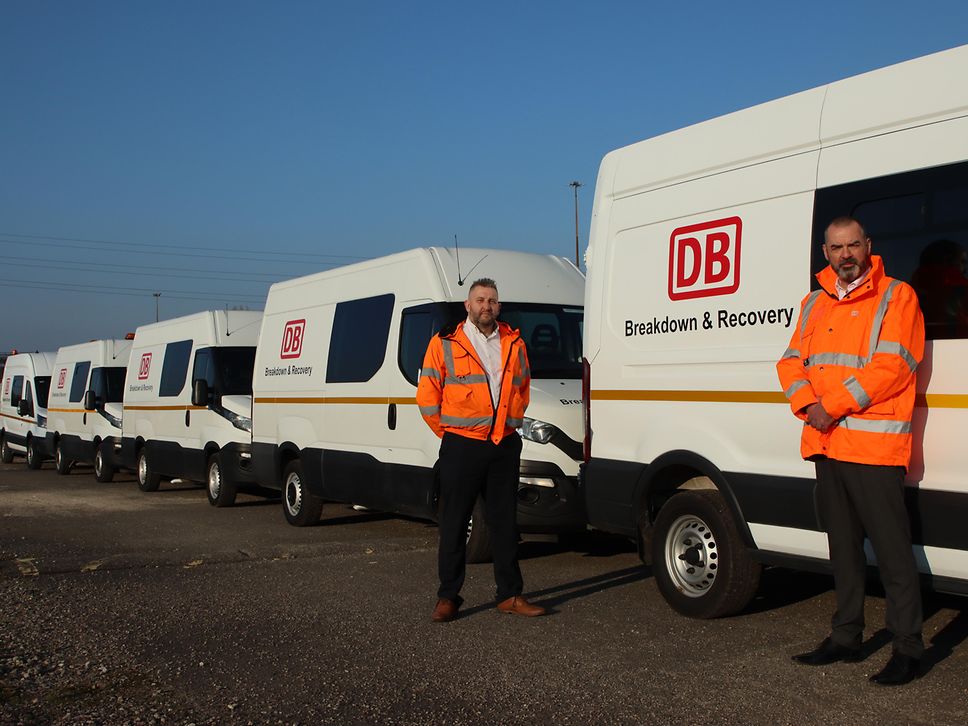Article: DB Cargo UK invests in new welfare facilities for breakdown and recovery teams
The new vehicles which will shortly be put into service across England, Scotland and Wales.
The Ford and Iveco vans have been specially-adapted to include onboard toilets, catering and cleaning facilities, enabling DB’s recovery teams to set up base in even the remotest regions of the UK’s rail network.
Every year, the rail logistic company’s breakdown and recovery teams respond to more than 100 incidents – ranging from minor derailments to major accidents - providing a rapid and effective recovery service to keep the UK’s rail network moving.
Its emergency teams operate 24 hours-a-day, 365 days-a-year and are based at Didcot in Oxfordshire, Wigan in Lancashire and Millerhill in Scotland.
The company’s Head of Asset Management and Maintenance Jon Harman said the teams’ work was both physically and mentally demanding and was often undertaken in challenging environments and harsh weather conditions.
He said the new welfare vans would go a long way to improving the overall working environment and wellbeing of his colleagues.

“This is a significant investment we’re making in our breakdown and recovery service which plays a pivotal role when things go wrong on the rail network. The new welfare vehicles provide a safe, dry and warm sanctuary for our colleagues out in the field who are often called to locations where there are little or no on-site facilities,” said Jon.
DB’s Breakdown and Recovery Manager Sean Coulby said some incidents required the teams to be on site for several days, or even weeks and the new welfare facilities would make life a lot easier for his colleagues.
“The tragic passenger train derailment at Stonehaven in Scotland in 2020 and last year’s derailment of a freight train at Petterill Bridge in Cumbria are just two examples of the type of challenging incidents our teams respond to,” said Sean.
“On each of these occasions we were on site for several weeks, leading the recovery effort and directing operations. This can be exhausting and stressful work so we want to do all we can to improve the on-site experience for our frontline colleagues,” he added.
“The new vans are comfortable and practical and we can’t wait to deploy them out into the field.”
ENDS